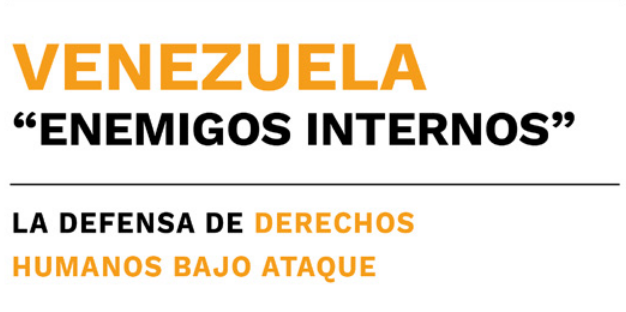The National Constituent Assembly (ANC) fraudulently convened by Nicolás Maduro in 2017 ceased functions in late December 2020, and although it remained active for more than three years, something unprecedented in national history, it will not fulfill its main task: writing a new Constitution. The reason is that the true objective was seizing the competencies of the National Assembly elected in December 2015. This was made clear by its president, Diosdado Cabello, who stated in an interview on the state-run TV station Venezolana de Televisión (VTV) the following:
“Drafting a Constitution is one of the premises that [a Constituent Assembly] could fulfill, another is to re-found the State and create a set of laws for that re-founding. And we have complied with the latter. You don’t necessarily have to fulfill all the premises. The Constituent Assembly of 1999 only drafted a Constitution, the laws were approved by successive national assemblies”.
Furthermore, he announced that the Assembly would not present a draft but it would continue to pass “constitutional laws.”
Cabello’s statement reveals that the instance has been “a constitutional fraud from its origin until its dissolution.” Thus, it was denounced by Accesso a la Justicia in the Report on the National Constituent Assembly. Its use as part of the institutional facade in Venezuela, in which the organization maintains that the figure of the Constituent Assembly ended up “taking with it the last traces of the rule of law that remained in the country.”
The report reviews the actions of the Constituent Assembly since it was installed on August 4, 2017, after a questioned call in May and a fraudulent election on July 30 of that year; and it highlights that almost all of its activity has been focused on acting as Parliament, despite not being so, in such a way that led it to pass or reform some thirty laws in the span of three years, some of which were classified as “constitutional.” by the body.
These instruments include the Law against Hate, which punishes those who “incite hatred” with up to twenty years in prison, and which has been used to prosecute citizens who demonstrate in the streets or express their disagreement with government policies on social media or even through written messages sent by phone. An emblematic case was that of the Mérida firefighters who recorded a satirical video riding a donkey.
Other texts to which the Constituent Assembly gave the qualification of “constitutional” include the document on Convened Prices and the one referring to the Local Committees of Production and Supplies. The latter aimed to “regularize” the distribution of food that, in a discretionary manner, is conducted by the committees under the control of the Maduro Government.
Larceny
The report also denounces that Maduro’s Constituent Assembly opened the doors to the plunder of the country’s resources and assets, through instruments such the Orinoco Mining Arc Tax Regime and, most importantly, the recent and controversial Anti-Blockade Law, which empowers the Government to carry out “all necessary legal acts or deals” to “prevent or reverse acts or threats of immobilization, dispossession or loss of control of assets, liabilities and patrimonial interests of the Republic”, without legislative or judicial control. This law also empowers the Executive branch to nullify the application of the provisions of the law, a power that the Constitution reserves to judges, in clear usurpation of functions.
In its report, Acceso a la Justicia denounces that:
“Fundamental areas of the Venezuelan economy, such as the exploitation of oil and public services, can be totally or partially transferred to foreign investors, without knowing who they are, which they are the terms of the commercial agreements with them and, even more, how the resources obtained from them will be managed”.
A local invention
Diosdado Cabello explained that “Constitutional laws have a constitutional character, and to change them you must convene another Constituent Assembly. These laws are above the organic laws”.
However, Acceso a la Justicia refutes this interpretation of the Constitution, and recalls that the figure of constitutional law does not exist in the Venezuelan legal system, so it constitutes another violation of the basic principles of law, according to which the Constitution is above all the other legal instruments.
The ANC has not only issued new instruments without having the power to do so, but it has also reformed instruments already in force such as the Law on the Value Added Tax (VAT) or the Organic Tax Code, which is also the task of the National Assembly. It has also approved the national budgets and the Central Bank of Venezuela (BCV) budget for 2018, 2019, 2020 and 2021. However, so far it has not exercised any form of control over the Government of Maduro, such as the interpellation of a minister, something that has not been done for decades, either because the National Assembly was under the control of the ruling party, or because the Supreme Tribunal of Justice has prevented the opposition-controlled Assembly from doing it.
Finally, the only measure that could be considered as an attempt to “transform the State,” another of the tasks that article 347 of the Constitution confers to a National Constituent Assembly, was the abolition of the Metropolitan mayoralties of Caracas and Alto Apure, which, besides being unconstitutional, has resulted in the impossibility of electing mayors in those two circuits, after voters in Caracas elected a Metropolitan mayor opposed to the Government. In other words, a decision was made to suppress the position once winning the election proved impossible.
How does it affect Venezuelans?
The efforts of the Constituent Assembly did not result in an improvement in the living conditions of Venezuelans, nor served its other great objective of “bringing peace”, despite its president claiming otherwise. “This is verifiable. Ask yourselves when was the Constituent Assembly elected, when was it installed and when did the last street protest took place”, affirmed Diosdado Cabello during the interview.
Although there have not been massive protests like those of 2017, street demonstrations have increased. In 2018, they totaled 12,715 compared to 9,787 in 2017 and further increased to 16,739 in 2019, according to data from the Venezuelan Observatory on Social Conflict.
Problems such as hyperinflation or public services deficiencies, far from being overcome, have worsened, as well as malnutrition and other aspects of the complex humanitarian emergency that has affected the country for at least five years, precisely because of the institutional dismantling carried out by the Maduro government to stay in power.
You can read the full report in English HERE.
Click HERE to read a recount of the “constitutional laws” issued by the ANC (in Spanish).
Translated by José Rafael Medina




